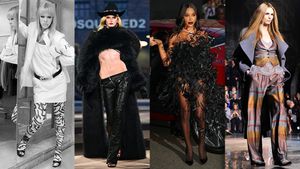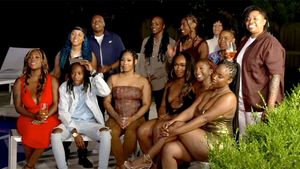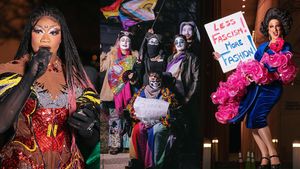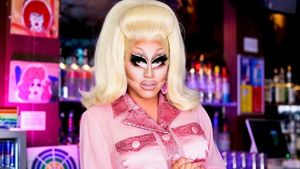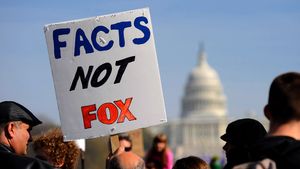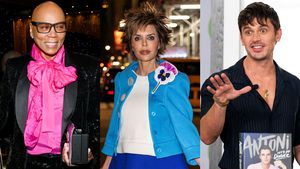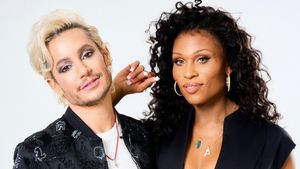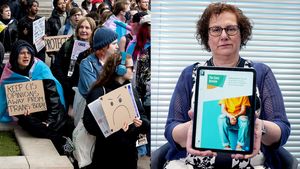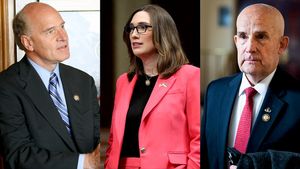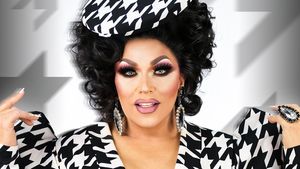Blue is the Warmest Color, the epic lesbian-themed love story that left Cannes’ audiences in shock and awe and took the Palme D’or, is set for a U.S. release this October 25, but the film’s director Abdellatif Kechiche now says he thinks the film should not be released since controversy about his directing style has “sullied” the movie’s reputation, according to The Hollywood Reporter.
Based on Julia Maroh’s graphic novel the film version of Blue runs a hefty three hours and includes, raw, unbridled lesbian sex scenes that go on for minutes on end. It also includes a frighteningly real fight scene between the young lovers played by Adèle Exarchopoulos and Léa Seydoux (Farewell My Queen, Midnight in Paris). In an interview earlier this month with The Daily Beast, Seydoux (pictured right) and Exarchopoulos (pictured left) expounded on the grueling five-month shoot for Blue that included 10 days to shoot the sex scenes.
“In every shoot, there are things that you can’t plan for, but every genius has his own complexity. [Kechiche] is a genius, but he’s tortured,” 19-year-old Exarchopoulos told The Daily Beast. “We wanted to give everything we have, but sometimes there was a kind of manipulation, which was hard to handle.”
(RELATED: 'Blue is the Warmest Color's' Léa Seydoux on Channeling Brando for the Epic Lesbian Love Story)
At the time of The Daily Beast article both actresses, while acknowledging Kechiche’s genius, said they would never work the French Tunisian auteur again.
Kechiche fired back at his stars, particularly at 28-year-old Seydoux -- whose prominent family owns Pathé, the world-renowned film equipment and production company that was founded in 1896 -- essentially calling her privileged and spoiled.
With the controversy ratcheted up Seydoux spoke with SheWired about working with Kechiche:
“The thing is that it’s the way he makes his films. So that’s just the fabrication. It’s very difficult. But as a director and as a person I would never say something bad. I don’t want to spoil his image. It’s just that it was horrible -- the shooting was horrible. And yes, of course, as an actress it’s my job, and sometimes you can feel manipulated but in a way that goes beyond the movie, it goes beyond the character. It’s something that touches you deeply, the human being, and you can feel not respected and that this is not work anymore.”
Seydoux went on to say that she is proud of her work on Blue, which not so incidentally made her and Exarchopoulos the 2nd and 3rd women to ever win the Palme D’or when they were awarded the prize last spring (Jane Campion was the first).
Fast forward to a month out from Blue’s U.S. release and Kechiche told the publication Telerama, "I think this film should not go out; it was too sullied. He added that because Seydoux and Exarchopoulos spoke to the press about feeling humiliated and embarrassed while shooting the sex scenes that audiences will not be able to view the film without prejudice, asserting that prior knowledge will prevent audiences from "entering the room with a clean heart and a watchful eye."
Kechiche also said, "In advance, they will ask: 'Did this man not harass the girls? Did they not cherish [the experience], too, and they do not dare say it?"
Despite the grueling shoot for Blue, Seydoux told SheWired, “I’m not a victim; I wanted to do this film. It was hard.”
Like SheWired on Facebook
Follow SheWired on Twitter



















































